The Politically Incorrect Guide to
THE PRESIDENTS
from WILSON to OBAMA
The Politically Incorrect Guide to
THE PRESIDENTS
from WILSON to OBAMA

Steven F. Hayward

Copyright 2012 by Steven F. Hayward
All rights reserved. No part of this publication may be reproduced or transmitted in any form or by any means electronic or mechanical, including photocopy, recording, or any information storage and retrieval system now known or to be invented, without permission in writing from the publisher, except by a reviewer who wishes to quote brief passages in connection with a review written for inclusion in a magazine, newspaper, website, or broadcast.
Library of Congress Cataloging-in-Publication Data
Hayward, Steven F.
The politically incorrect guide to the presidents / by Steven F.
Hayward.
p. cm.
ISBN 978-1-59698-776-0
1. Presidents--United States--Biography. 2. United States--Politics and government--20th century. 3. United States--Politics and government--21st century. I. Title.
E743.H36 2012
973.099dc23
[B]
2011051029
Published in the United States by
Regnery Publishing, Inc.
One Massachusetts Avenue NW
Washington, DC 20001
www.Regnery.com
Manufactured in the United States of America
10 9 8 7 6 5 4 3 2 1
Books are available in quantity for promotional or premium use. Write to Director of Special Sales, Regnery Publishing, Inc., One Massachusetts Avenue NW, Washington, DC 20001, for information on discounts and terms, or call (202) 216-0600.
Distributed to the trade by
Perseus Distribution
387 Park Avenue South
New York, NY 10016
To Natalie and Pete,
for the obvious reason
CONTENTS

Before he enter on the Execution of his Office he shall take the following Oath or Affirmation: I do solemnly swear (or affirm) that I will faithfully execute the Office of President of the United States, and will to the best of my Ability preserve, protect, and defend the Constitution of the United States.
U.S. Constitution, Article II, Section 1, Paragraph 8
T he Founding Fathers would be appalled by the modern presidency. Of all the things that would horrify them about the scope and reach of government today, the one that might alarm them most is the character of the modern office of president. The scale of the presidential office and the conduct of modern presidents are very different from what the Founders envisioned. In fact, the modern presidency is the exact opposite of what the Founders intended. The behavior of most modern presidentspersonally ambitious politicians (or demagogues, in the Founders eighteenth-century vocabulary) making populist appeals, offering lavish promises, often impossible to fulfill, of what they will do for the peopleis precisely what the Founders wanted to avoid when they created the institution. The modern presidency has become one of the chief ingredients in the recipe for endlessly expanding the government beyond the limits the Founders laid out for it in the Constitution.
But this is not what you will learn from the leading textbooks and histories of the presidency, or from biographies of modern presidents. Most of the leading academic textbooks and the prominent media figures who cover presidents implicitly teach that the greatest modern presidents are those who have made the government bigger and more powerful, and expanded the reach of the presidency. Thus Woodrow Wilson and Franklin Roosevelt are typically ranked very high by pundits and historians alike, despite those presidents obvious political and policy failures, while presidents with a limited-government point of view, like Warren Harding, Calvin Coolidge, and Ronald Reagan, are ranked poorly and treated with dismissive scorn by historians and journalists.
Today the president stands at the apex of the American political system, and the presidency is the first thing most citizens think about when they turn their attention to politics. The president can truly be said to be the center of gravity in American politics today. But this is a wholly modern phenomenon. Before the twentieth century, Congress was considered the more important branch of government.

A Step Down?
Thomas Reed, the legendary Republican Speaker of the House between 1889 and 1899, dismissed suggestions that he run for president because he considered it a lesser office than Speaker of the House.
To be sure, we want great menin the serious, classical sense of the phraseto serve in the office of the president. We want men of high character and ability to preside over the operation of our government. But the president is the focal point of the chief paradox of the republican form of self-government. We choose our temporary rulers from amongst the ranks of our fellow citizens. We want to be able to look up to our government officialsthe president most of allbut we do not want them to look back down upon us. We want to put the president up on a pedestal, but still gaze upon him at eye-level. The most successful and popular presidents were able to manage this paradox, commanding the American peoples respect and responding to the real needs of the moment (pre-eminently defending the nation from foreign threats and securing law and order) while still connecting with citizens as their equals. It is less clear that we are well-served, or the nation improved, by presidents with ambitious visions of how American society should be transformed.

A Book Youre Not Supposed to Read
The Cult of the Presidency: Americas Dangerous Devotion to Executive Power by Gene Healy (The Cato Institute, 2008).
Today too many Americans believe the president is or ought to be some kind of miracle worker. For those who seek solutions to all lifes problems in politics, the president as hero makes perfect sense. Liberals swooned over the personality of Barack Obama, who reminded them of John F. Kennedy because of his charisma.
In the early 1960s it was common to see photos of John F. Kennedy on the walls of Catholic homes alongside images of the Pope. In the 2008 election a local NBC affiliate in Denver broadcast the comments of Barack Obama supporter Peggy Joseph, who said that if Obama was elected, I wont have to worry about putting gas in my car, I wont have to worry about paying my mortgage.... If I help him, hes going to help me. As the Cato Institutes Gene Healy put it, We still expect the commander in chief to heal the sick, save us from hurricanes, and provide balm for our itchy souls. Healy points to the presidents acquired situational narcissism, enabled by the American people, who have become presidential romantics.
The expectation that a godlike president can or should solve all of our problems reinforces the central impulse of liberalism, which is to politicize more and more of private life, ever expanding the power of government. The inflation of the presidency and the expansion of government that goes with it have inflated status, power, and egos all the way down the food chain, with senators, representatives, and senior executive branch appointees coming to believe and act as though they are a separate, privileged elite ruling class. But the reach of the modern presidency, like the reach of government itself, exceeds its grasp: there is a huge gap today between the peoples expectations and presidents capacity to deliver. Our soaring expectations set our presidents up for failureespecially those like Barack Obama, who overpromise in vague, grandiose terms like hope and change.

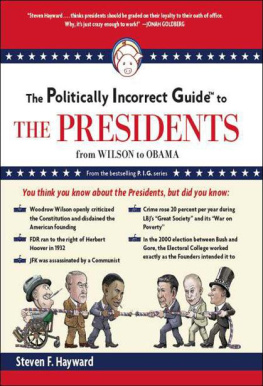

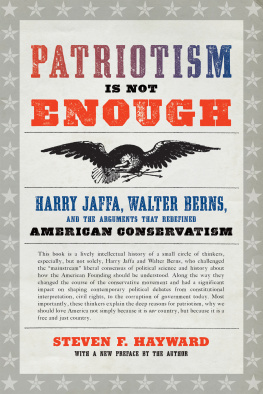

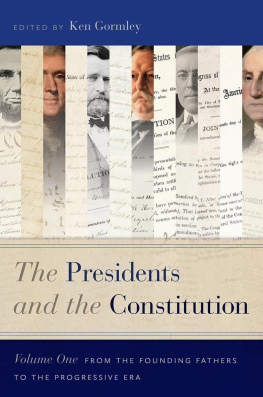


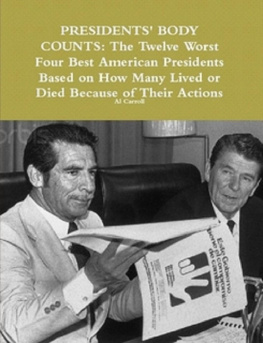
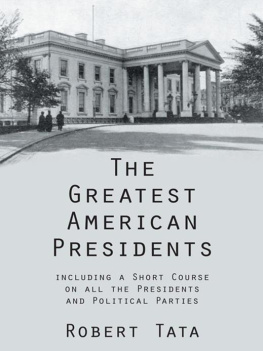
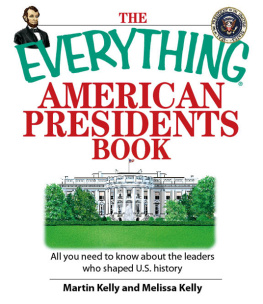
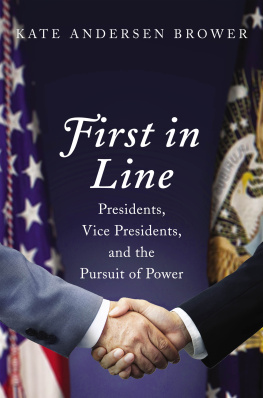
![Blackstone Audio Inc. - The politically incorrect guide to the presidents: [from Wilson to Obama]](/uploads/posts/book/167736/thumbs/blackstone-audio-inc-the-politically-incorrect.jpg)





